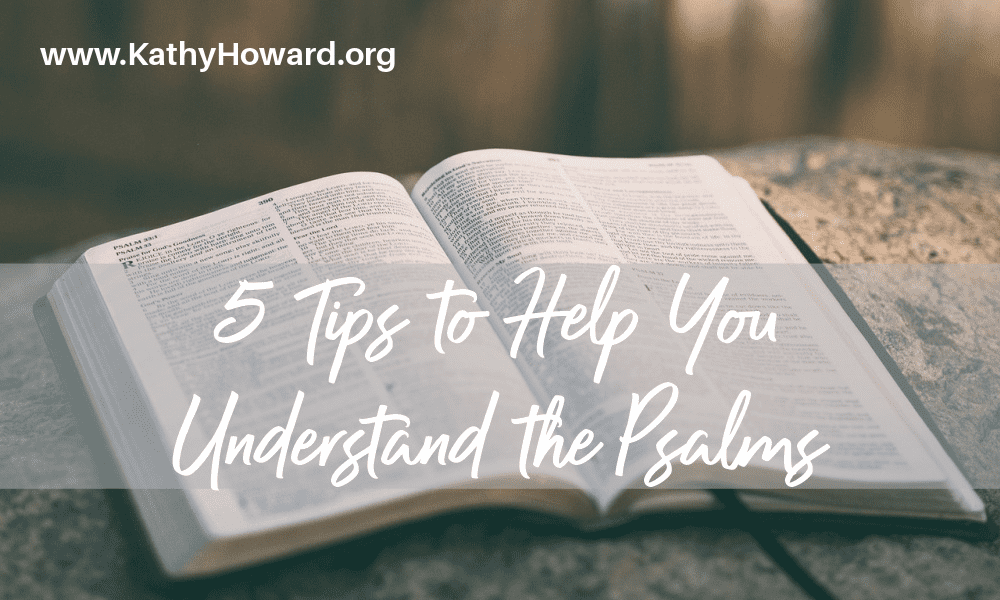
Most of us love the book of Psalms. We connect to them in a unique way because they engage our emotions and ignite our imagination. But do we understand the psalms as well as we could?
Thirty-three percent of the Old Testament is poetry and Psalms is the biggest book of poetry in the Bible. Although all of Psalms is poetry, it includes many different types of poetry such as prayers, songs, liturgies, and even wisdom.
God speaks to mankind throughout the whole of the Bible, but the psalms add a dimension. In this collection of poems, mankind also speaks to God, expressing our heart and emotions. With the psalms, we use God’s words to speak to or about God. The psalms have been used by God’s people to foster worship and prayer for about 3,000 years! They are still a model for us today, helping us understand appropriate ways to talk to God.
Who wrote the psalms?
The psalms were written by a number of different people over the course of several centuries. They were written by royalty, priests, Levites, prophets, and more. The entire collection of psalms is divided into 5 smaller “books.” Some commentators think the final arrangement of the psalms into books happened after the exile and return of the remnant. Each of the five books of the psalms may center on a particular theme, potentially corresponding with the periods of Israel’s history like the monarchy, the failure of the nation, exile, and restoration. Here is the breakdown of the five books of Psalms:
Book I: Psalm 1 – 41
Book II: Psalm 42-72
Book III: Psalm 73-89
Book IV: Psalm 90-106
Book V: Psalm 107-150
Tips to Better Understand the Psalms
Every passage in the Bible has just one meaning – the one God originally intended. But each original meaning can have endless application for our lives. But before we can apply, we need to discover God’s meaning. (For more on this see “4 Tips to Help You Understand the Bible” and “4 R Method for Everyday Bible Study.”)
- Identify the purpose – The overall purpose behind the collection of psalms was to facilitate corporate worship. But individual psalms fulfill different aspects of that purpose. Recognizing the purpose of the psalm we read will help us understand its meaning. Here’s a sampling of the reasons behind the writing of the psalms:
- Praise
- Coronation ceremony
- Prayer
- Lament
- Express intense emotion or grief
- Repentance
- Temple entry liturgy
2. Watch for parallelism – Parallelism is frequently used in Hebrew poetry. This is two or more brief phrases (couplet) that basically say the same thing in multiple ways. The 2nd line adds to the first by restating it in a different way, expanding on it, clarifying it, or contrasting. Although there is a lot more to learn about variations of parallelism, there are two primary types:
- Synonymous parallelism (see Psalm 1) – Says the same thing in different ways
- Antithetical parallelism (see Psalm 1:6) – Shows a contrast between two things to show a distinction
3. Look for metaphors, similes, and hyperbole – Since the psalms are poetry they are naturally full of poetic language. This includes a variety of word pictures. These devices are not to be taken literally, but the visuals help us better understand the spiritual truth. For instance, God is like a shepherd (Psalm 23) in that He guides, protects, and cares for us. God is not literally a shepherd.
4. Consider the whole psalm – Each psalm is a unit. You will best understood each verse within the context of the entire psalm.
5. Use the psalms to express yourself to God – Watch for ways to worship, pray, meditate, and express yourself honestly to God.
Join a study of Psalms 1-41
Want to dig into the Psalms with me? This beautiful Hebrew poetry helps us learn how to pray and worship God. Beginning Monday, May 23rd I will be leading reading and discussion of Psalms 1-41 on Facebook. This daily Bible reading and discussion happens in the private group “Reading the Bible Together.” Readings and questions post Monday – Friday at 5am. But it’s “come and go.” You can pop in on whatever time schedule works for you. If you’re interested, follow this link, request to join and answer the 3 easy questions!
What is your favorite psalm? Why is it your favorite?


Titus Bible Study
Join Kathy's mailing list to receive a free mini Bible study on the book of Titus.
Success! Check your inbox for the download link.